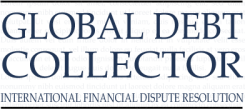Domain Name Disputes have become precious commodities as the internet has no boundaries and no closing hours and unlike trade marks each domain name is unique. This means there can often be some pressure to be the first to register a domain name, and this can lead to disputes on the “right” to register. As a result domain name disputes can arise.
Domain names and disputes are managed according to policies set by ICANN (Internet Corporation for Assigned Names and Numbers). Because of the increasing popularity of the Internet, companies have realized that having a domain name that is the same as their company name or the name of one of their products can be an extremely valuable part of establishing an Internet presence.
A company wishing to acquire a domain name must file an application with the appropriate agency. Before doing so, a search do to see if their desired domain name is already use. When a company finds that the domain name corresponding to their corporate name or product trademark is owned by someone else, the company can either choose a different name or fight to get the domain name back from its current owners.
Disputes that arise:
Concurrent Rights
Registration is on a first come first serve basis. Simply because you have a registered trade or service mark, have a registered company name, or have been using a trade name for a lengthy period of time does not mean that another person with a legitimate reason for registering the domain and who uses it in good faith must give it up.
One example of this is the Prince Sports case in which Prince Sports tried in vain to have the domain www.prince.com transferred from Prince Computers in the UK. Companies with trademarks have try to bully legitimate registrants out of attractive domain names, this has sometimes call Reverse Domain Name Hijacking and damages can now award in the US under the US Cybersquatting Act for such practice.
Cybersquatting
These are common disputes. Cybersquatting involves the registrant having registered a name, or names in most cases, in bad faith to gain some commercial advantage. This can involve trying to sell it back to a party it knows would interest in having registration of the domain name for an inflated price or more commonly using it to direct traffic to their website. The website of a trade competitor of the trade mark holder in return for payment of a commission.
Gripe sites
Arbitrators and the courts have inclined to order the transfer of the offending domain name particularly if there is some bad faith or a lack of legitimate use. Reasoning for this has been that a non-native English speaker. May not disassociate the “suck” from the trade mark holder’s mark. However, it has show that those registering a domain name incorporating a known trade mark and using the domain name. Host a website to air legitimate grievances against the trade mark owner can successfully defend the registration of such a domain name.
To be successful in using the dispute resolution process to acquire these domain names the trade mark holder must demonstrate. The registrant has acted in bad faith perhaps by demonstrating some attempt to extract a commercial gain from the trade mark holder. In a case involving stopecg.com. A valid site airing discontent at the business practices of the travel guide publisher European City Guide. The domain name was not transfer.
Here it was contended that a prudent person would know that the site was criticizing the company. That these were not the views of the company itself. Therefore there was no bad faith or disparagement of the trade mark. This highlights the problems that can arise with the domain name dispute process notably that inconsistent decisions. Arise as decisions do not have to be follow in subsequent cases. Intellectual property characterizes an extensive scope of property made by Designers, authors, Manufactures, and makers.
Cector experience
Our sector experience covers all major industries including textiles, cement, steel, education, telecommunications, banking, insurance, media, information technology, domain names, retailing, fashion, pharmaceuticals, food and beverages, agriculture products, energy, furniture and foam manufacturing, etc. Multiple offices provide us proximity to both regulators and to our clients. Our attorneys include the most experienced names in IP law with local focus and international outlook. Providing preeminent advice in an increasingly global business world.
With over fifteen years of rich experience and an unmatched growth. We are big enough to handle multidimensional legal issues. And small enough to pay special attention to the specific needs of each of our clients.

Post a Comments